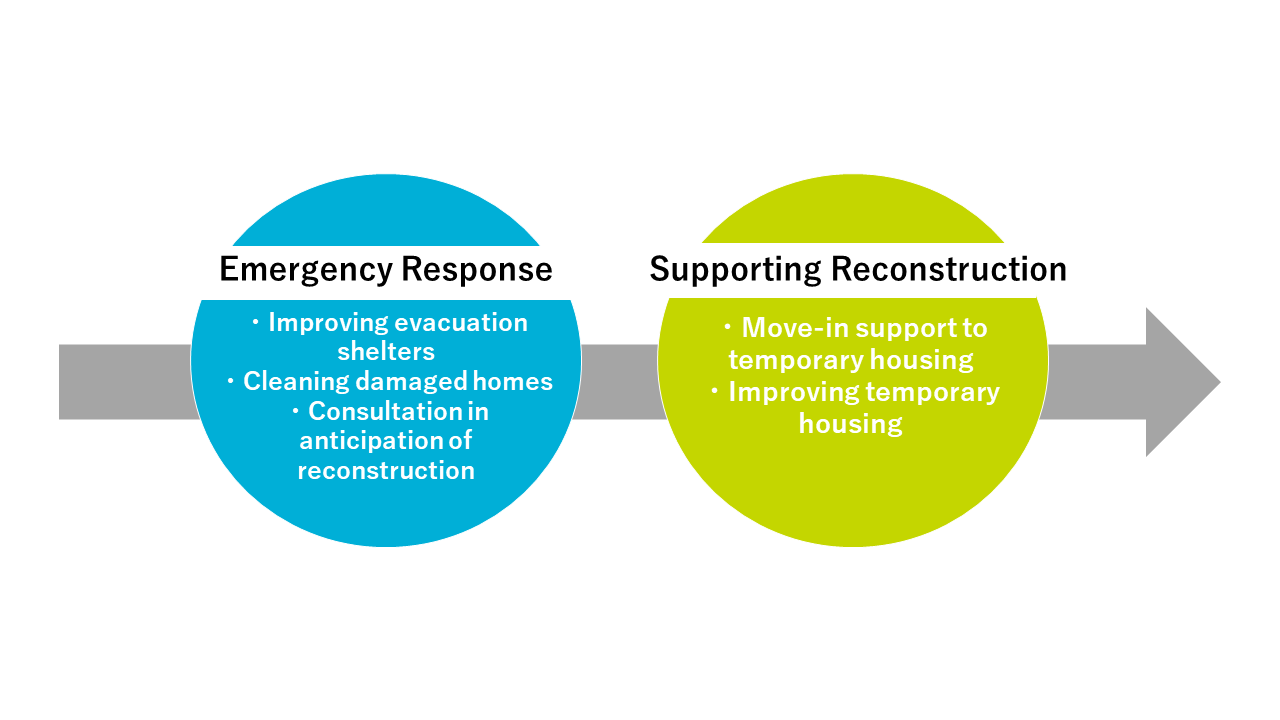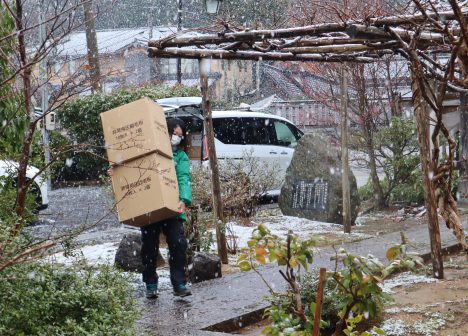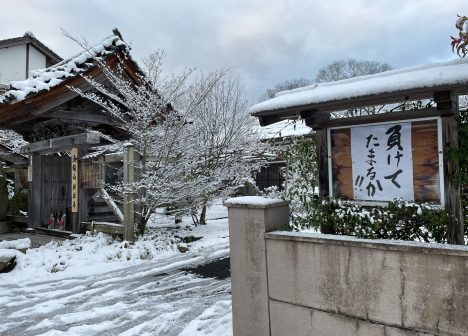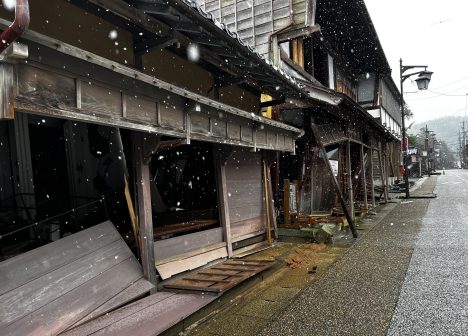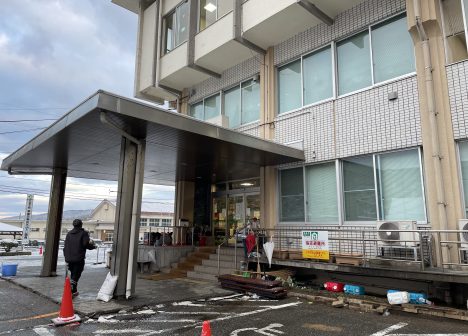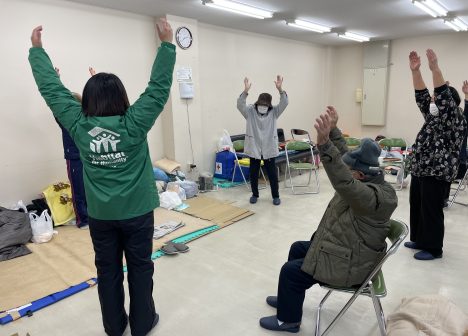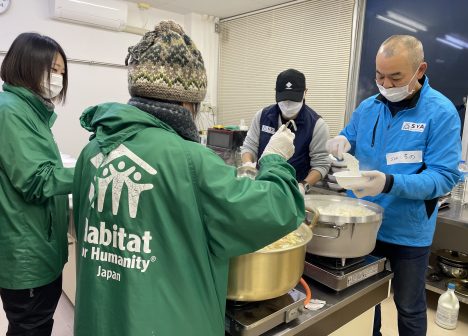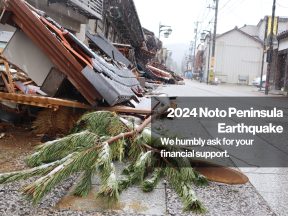Noto Peninsula Earthquake
Call for Emergency Aid
Our hearts and minds at Habitat Japan are with those whose lives and homes were lost to the Noto Peninsula earthquake, which struck on New Year's Day 2024. It is our sincere hope that all those affected by the disaster may return to a safe and decent life as soon as possible.
Following an initial survey conducted by a Habitat Japan team dispatched to the disaster area from January 12, we have finalized plans to provide disaster aid to the Monzen-machi area in Wajima City.
The Noto Peninsula quake caused extensive damage to roadways and infrastructure in a very wide area. Two weeks after the disaster, electricity has been restored in several areas, water infrastructure has yet to be restored. As of now, those still evacuated from their unsafe or destroyed homes are forced to rely on supplies of bottled water to meet all of their daily needs.
Wajima City, where Habitat Japan has decided to provide support, is located in the northern part of the Noto Peninsula and consists of districts of Wajima-machi and Monzen-machi with a combined population of 23,000. Monzen-machi is a particularly underpopulated and aged community, home to only about 20% of Wajima City's population. Many of the homes in the area are old constructions that either partially or fully collapsed during the quake, forcing over half of the Monzen-machi population to continue evacuating. Many of those with children or who are lucky enough to have family in neighboring areas have gone to them and are evacuated outside of the city, leaving the very elderly population making up the vast majority of those still evacuating in the nearly 20 evacuation shelters in Monzen-machi. Due to the thinly spread population in depopulated Monzen-machi combined with restricted traffic conditions, the area is lacking in both relief supplies and staff.Most people currently living in evacuation shelters expressed their wish to stay there until temporary shelters become available, making these shelters a temporary but extremely important home. Habitat Japan will work to provide disaster response as well as to continually search for methods to allow for a return to a safe and decent life for those affected as soon as possible. Our first response is to link with partner organizations in the area to meet emergency needs, improve shelters, and offer cleanup and other support that elderly residents require in the wake of this disaster.
